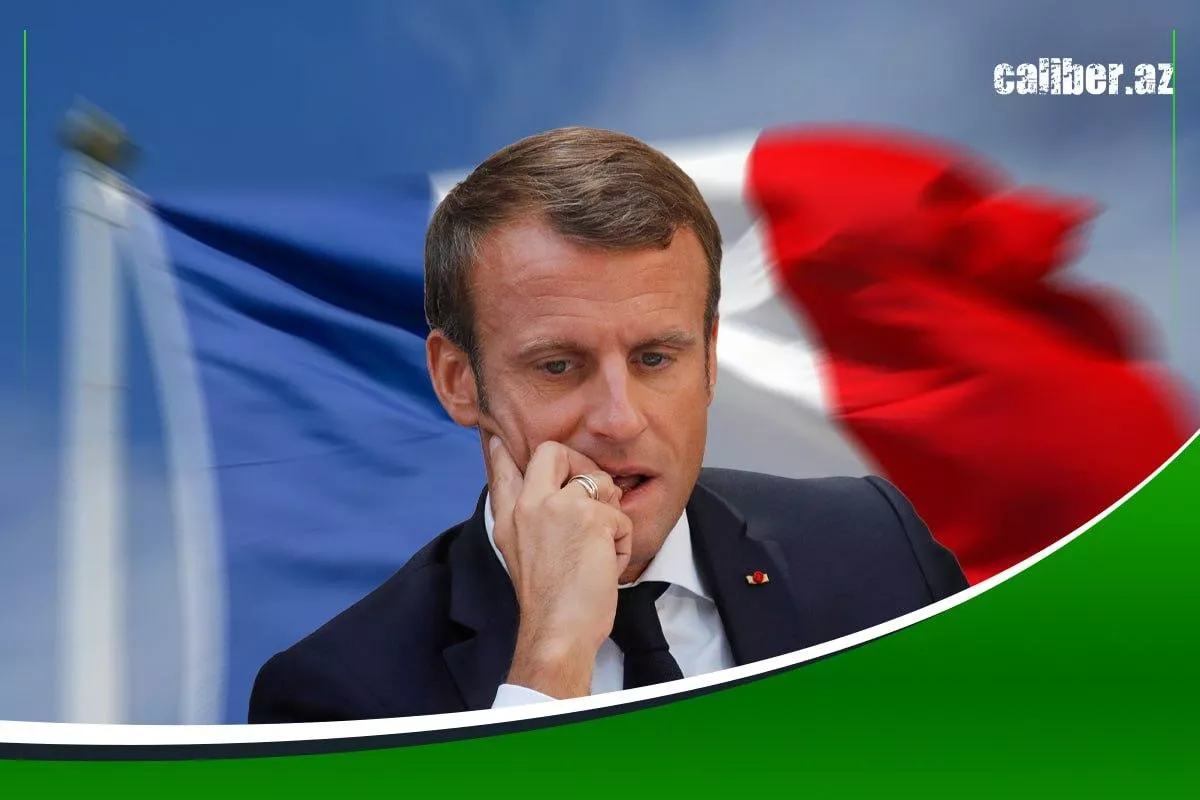EU's struggle on the path to becoming independent global power Expert insights
A combination of political paralysis, external threats, and economic problems threatens to put an end to the European Union's ambitions to become an independent global power, Bloomberg reports. After decades of warnings and sluggish growth, the EU is suddenly facing a barrage of evidence that the downturn is becoming unstoppable, the agency notes.
"The president of France, a Europhile, has handed the veto power over his government to the far-right; Germany’s largest automaker has spoken for the first time about closing factories at home; and American tech giants are turning away from the European market due to its new restrictions on artificial intelligence. All of these events underscore the EU’s inability to act as a cohesive and dynamic economic bloc, undermining its status and reducing its ability to respond to a wide range of threats—from Chinese industrial policy to Russian military aggression or even a future antagonistic administration in the US," the agency argues.
The lack of interest, and even resistance, to increasing investments and issuing joint bonds to combat weak productivity growth highlights that the EU has effectively given up on the fight.
"If you want to be a geopolitical power, economic strength is a key factor. Productivity growth has simply become a disaster," says Guntram Wolff, professor at the Free University of Brussels and senior fellow at the Bruegel think tank.
The main problem is that the world is experiencing dramatic shifts related to climate change, demographics, and the transition to a post-industrial economy—areas in which Europe lags behind in both capacity and readiness to respond, the agency notes.
While the EU's geopolitical rivals, primarily China and the US, are looking to leverage these challenges to their advantage, many of the EU's largest members are burdened by outdated and stagnant economic models and voters unwilling to embrace alternatives. Despite their problems, China and the US have systems that largely centralize decision-making and generate vast amounts of private or public capital for defence and investment in cutting-edge technologies. Europe lacks any of these advantages, and this is becoming increasingly evident.

"I truly believe we are in danger. In the next two to three years, if we continue with our classic agenda, we will be out of the market. I have no doubt," warned French President Emmanuel Macron during a panel discussion in Berlin this month.
The risks are already starting to crystallize for the EU, as the bloc's dependence on the Chinese economy grows, the agency emphasizes.
Investors are also beginning to express doubts about Europe, particularly following recent decisions by Apple Inc. and Meta Platforms Inc. not to release their latest AI products in the EU market. The American tech giants have concluded that the EU's AI regulations are too strict.
"The relative decline of the EU has not ceased for a quarter of a century since the formation of the currency union. An analysis by Bloomberg Economics shows that the bloc’s economy would be roughly €3 trillion [$3.3 trillion] larger if it had kept pace with the US—enough to raise the average worker's income by around €13,000 ($14,180) per year," the article states.
"It is clear that Europe is falling behind its main trading partners, the US and China. If immediate action is not taken, the decline will eventually become irreversible," said Greek Finance Minister Kostis Hatzidakis.
So, how accurate are the well-known Bloomberg agency’s pessimistic assessments? Is it fair to agree that the European Union's ambitions to become an independent global power have objectively come to an end?
Caliber.Az asked Western analysts to provide their opinion on the matter.

German political scientist Alexander Rahr, professor at the WeltTrends Institute for International Politics (Potsdam), stated that, to his deep regret, such an analysis of the European Union's dismal state is accurate.
"In my view, the main problem is not the economic potential of the European space. The EU still has a highly developed economy, skilled workers, a strong scientific base, a large consumer market, advanced know-how, and more.
"The problem lies in the politics that have overly bureaucratized the European Union in recent times, as well as in the ideology of 'liberal values,' which has become a new leitmotif that often operates solely from narrow moral considerations, disregarding common sense," the professor emphasized.
According to Rahr, the best example of this is migration policy, when, under the distorted notion of humanitarianism, the EU was overwhelmed with mass migration, which is now undermining the entire social system of European states. The leadership in Brussels is completely idealised. Morality and liberal values rule there, not real policy. Europe says explicitly that it does not need its own geostrategy, that it is alien to national pragmatic interests, and that it is proud to be an “empire of values” that it should export to the whole world.
"The main problem that will doom the European Union is the demographic crisis. Without economic growth, it will be impossible to maintain the level of prosperity that the population has become accustomed to over the past 50 years," Rahr believes.

Meanwhile, commenting on the matter, Greg Simons, a political scientist from Sweden said, "I agree with some of these conclusions, but not with all of the points." In his view, climate change as a factor is not the main cause of the downturn; rather, it lies in the EU's misguided policies, where the ideological process takes precedence over practical outcomes.
“The Green New Deal is definitely helping to kill the economy by forcing the abandonment of energy sources such as nuclear, with nothing to replace their capacity, because the so-called green alternatives are dirty to produce and cannot cover the energy deficit. Compare the energy state of the economy of Germany with its ‘green ideology’ and Romania with its rational and pragmatic approach to energy supply issues,” the doctoral candidate suggests.
He believes that the EU is not an independent entity and never will be.
"Strategic autonomy is effectively nonexistent; Europe not only lacks an independent vision but also fails to protect its interests from US policies that are deindustrializing the EU through tactics like undermining Nord Stream and imposing sanctions on Russia, which have cost Europeans over $1.5 trillion. Furthermore, they are pressured to sever all beneficial economic ties with China due to the toxic geoeconomics of the US, aimed at maintaining a semblance of hegemony," the expert notes.
Another point he makes is that European leaders are complete vassals of Washington.
"They have no dignity for themselves, let alone for their countries. Generally speaking, they possess, at best, a low average level of intelligence, which, combined with their internal slave mentality, is fatal to any notion that Europe could ever be even remotely independent, or even prevent a possible collapse of the EU," Simons concluded.








